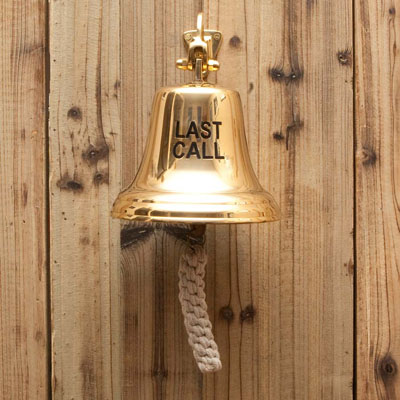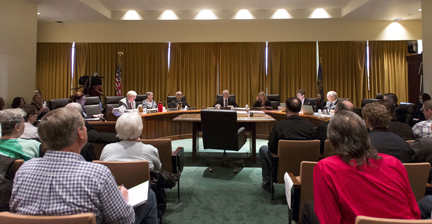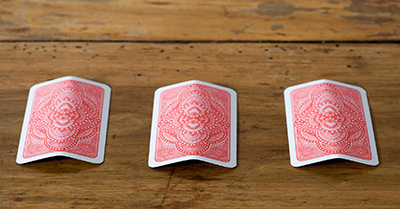Blog
4 A.M. Last Call Bill Stalls, Opponents Rallying
- Details
- Created: Saturday, April 29 2017 17:44
 One by one, Californians are raising their voices to oppose SB 384, Scott Wiener’s bill to strip away community last-call protections. The bill, which distorts the concept of “local control” over bar closing times to appeal to big-bucks nightlife and hospitality interests, was slowly progressing through the legislature, but may have hit a roadblock. In a powerful op-ed in the Sacramento Bee, Patrick R. Krill, an attorney, advocate, and licensed drug and alcohol counselor, makes the argument that it should stay there.
One by one, Californians are raising their voices to oppose SB 384, Scott Wiener’s bill to strip away community last-call protections. The bill, which distorts the concept of “local control” over bar closing times to appeal to big-bucks nightlife and hospitality interests, was slowly progressing through the legislature, but may have hit a roadblock. In a powerful op-ed in the Sacramento Bee, Patrick R. Krill, an attorney, advocate, and licensed drug and alcohol counselor, makes the argument that it should stay there.
Mr. Krill explains that alcohol harm costs California $35 billion per year, more than any other state, even while California refuses to raise alcohol excise taxes. In addition, he points out that “the proposed legislation also seems to absurdly suggest that local communities exist in hermetically-sealed isolation from one another, and that the late-night activities in one will not have a direct effect on others. In the state with the most licensed drivers in the country, and many sprawling urban areas that contain numerous contiguous ‘communities,’ any notion that closing times for bars should be a local matter amounts to nothing more than distractive window dressing on an otherwise dubious proposal.”
Currently, the bill rests in the suspense file, after the Senate GO found that it would cost an additional $1-$2 million yearly to ABC alone over the first two years—never mind the ongoing financial hit individual communities would take in enforcement and stress to the emergency medical systems. However, the suspense file may not be enough.
“It’s good to see this bill not moving forward,” said Michael Scippa, public affairs director at Alcohol Justice, “but it needs to be stopped, turned back, and torn apart. It was an obviously bad idea from the get-go.” Alcohol Justice urges concerned California citizens to bury SB 384 and protect common-sense alcohol regulation.
TAKE ACTION to tell your CA Assembly member to make sure Sen. Wiener's bill gets bounced.
READ MORE about SB 384 backers’ soulless exploitation of the Ghost Ship victims.
Hope and Reversals as Whiteclay Fight Goes to the Courts - 4/27/17
- Details
- Created: Saturday, April 29 2017 17:37
 The residents of the Pine Ridge Reservation saw daylight for a moment, until a Nebraska judge ruled the door slammed shut. Presented with evidence of the chronic and unaddressed public health catastrophe caused by a flood of alcohol coming through the tiny nine-person town of Whiteclay, the Nebraska Liquor Control Commission ruled unanimously to pull the licenses from the town’s stores. On Thursday, April 27, however, Lancaster County District Judge Andrew Jacobsen threw out the commission’s decision, ruling that automatic renewals of liquor licenses are constitutionally mandated.
The residents of the Pine Ridge Reservation saw daylight for a moment, until a Nebraska judge ruled the door slammed shut. Presented with evidence of the chronic and unaddressed public health catastrophe caused by a flood of alcohol coming through the tiny nine-person town of Whiteclay, the Nebraska Liquor Control Commission ruled unanimously to pull the licenses from the town’s stores. On Thursday, April 27, however, Lancaster County District Judge Andrew Jacobsen threw out the commission’s decision, ruling that automatic renewals of liquor licenses are constitutionally mandated.
The unexpected ruling flew in the face not only of the residents of Pine Ridge, but also a rapidly growing number of Nebraskan leaders. State Senator Patty Brooks had already declared White Clay a “public health disaster.” Col. Tom Brewer, a freshman state senator whose district includes Whiteclay, has stood strong for the closure of the stores even as constituents threaten to withhold their votes. After an April 6th hearing Liquor Commission hearing, which uncovered appalling health consequences and chronic crime paired with very little law enforcement efforts, the liquor commission deliberated on whether to force the four Whiteclay stores to re-apply for licenses, unanimously agreeing not to automatically renew. Under the conditions afflicting Whiteclay, there was little chance a new application would have been approved.
Judge Jacobsen’s decision undermines that, however, ruling that a felony conviction, the licensees can’t be forced to reapply. To Alcohol Justice Advocacy Director Jorge Castillo, however, that makes for a delay, not a reversal. "It is clear that the Whiteclay Liquor stores have been breaking the law and devastating the Pine Ridge community for decades,” he said. “With growing public awareness and pending hearings, these stores can't continue to get away on technicalities forever."
The Nebraska Attorney General’s office is appealing the decision, however; after a rapid legal back-and-forth, it appears the liquor stores will close until the appeal is decided. Even if the stores prevail again, the Attorney General’s Office alleges the stores have engaged in bootlegging, and a hearing on those charges will go forward later this year.
"Pine Ridge activist and community advocates have fought hard for decades they are not going to give up now,” said Castillo. “Alcohol Justice will continue to assist in this effort until we stop the illegal alcohol activity associated with the liquor stores taking place in Whiteclay."
The coming months will show what new efforts are needed from advocates for the Sioux and public health. But starting Sunday, even if it only lasts for a few days, Pine Ridge and Sheridan County will know what it’s like to live without the constant, devastating specter of alcohol harm.
READ MORE about the Nebraska Liquor Commission hearings.
Congress Abuses Tax Break Meant to Reward Responsible Wineries
- Details
- Created: Monday, March 27 2017 18:52
 U.S. Congress likes to play three-card monte with regulations, daring its constituents to find the reckless industry giveaways that are shifted around under the surface of innocuous legislation. So it is with HR 747 the Craft Beverage Modernization and Tax Reform Act of 2017—a bill which would seem meant to give small artisans a leg up, but actually increases the number of dangerous products on the market.
U.S. Congress likes to play three-card monte with regulations, daring its constituents to find the reckless industry giveaways that are shifted around under the surface of innocuous legislation. So it is with HR 747 the Craft Beverage Modernization and Tax Reform Act of 2017—a bill which would seem meant to give small artisans a leg up, but actually increases the number of dangerous products on the market.The Craft Beverage Modernization Act is nothing new. It’s a repackaging of the a bill with the same name from 2015, which never made it out of committee. On its face, the bill drastically cuts taxes on brewers, vintners, and distillers. This alone undermines the United States’ ability to recoup alcohol-related costs through Charge for Harm legislation. However, buried in the bill is a particularly egregious red queen.
Currently, wine manufacturers enjoy a tax break if they produce wine under 14% ABV. This bill would extend that break for wine up to 16% ABV. While this is a simple change on its face, it betrays the public trust. Since the break is meant to incentive vintners to keep their alcohol content low—even though many wines are “naturally” higher—it increases the prevalence of higher alcohol wines overnight. The same “just a glass” become about 15% stronger. Moreover, this is not reducing a tax burden, it’s extending a tax break. It is taking what is essentially a reward for making products with the public good in mind, and giving it to manufacturers who make far less of an effort.
Bill co-Sponsor Ron Wyden (D-Oregon) claims that booze manufacturers “face the unfair burdens of Prohibition-era rules and taxes,” but this seems improbable since alcohol sales were entirely illegal during Prohibition. Indeed, policies like the moderate-ABV wine incentive produce no burden at all.
“The industry is already obsessed with unnecessarily high ABV products,” said Alcohol Justice Public Affairs Director Michael Scippa. “There’s no sane reason to remove an effective economic brake on this alcohol content race.”
Just like in 2015, this bill seeks to reward an industry that has done nothing to deserve it, and has no reason to change.
READ MORE about Charge for Harm.
READ MORE about pending alcohol tax legislation throughout the U.S.
More Articles ...
Subcategories
Help us hold Big Alcohol accountable for the harm its products cause.
| GET ACTION ALERTS AND eNEWS |
STAY CONNECTED    |
CONTACT US 24 Belvedere St. San Rafael, CA 94901 415-456-5692 |
SUPPORT US Terms of Service & Privacy Policy |


